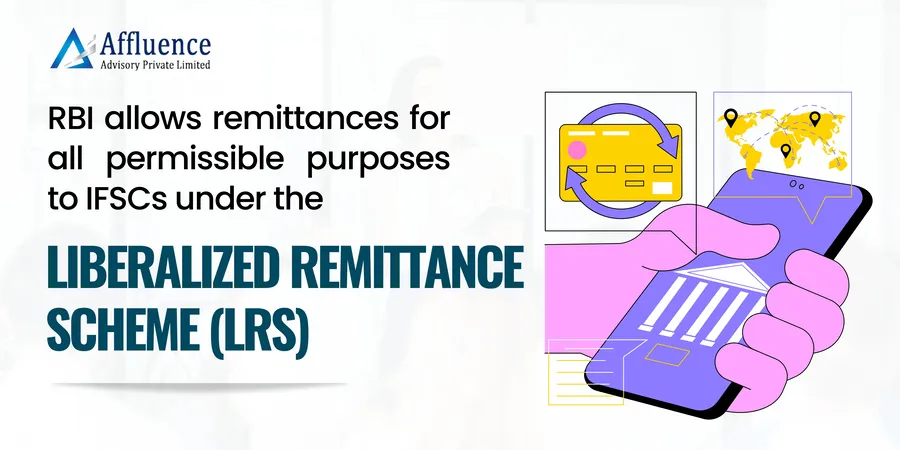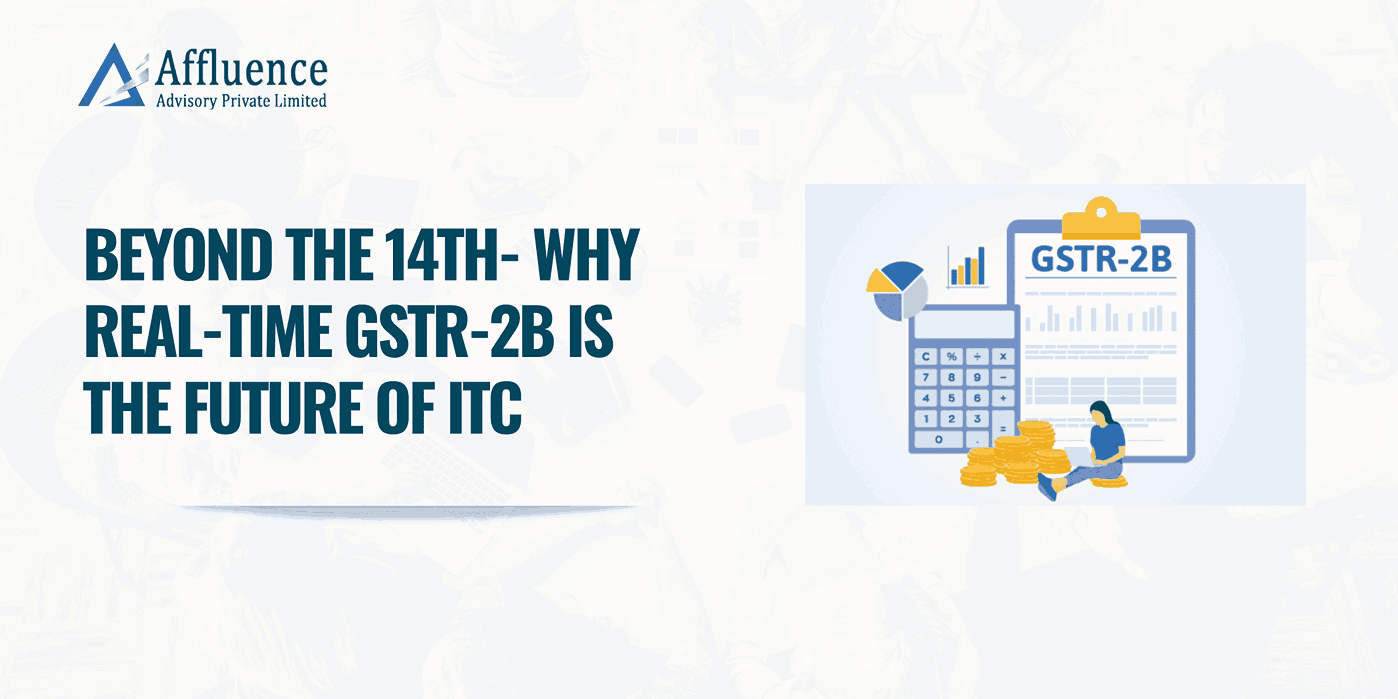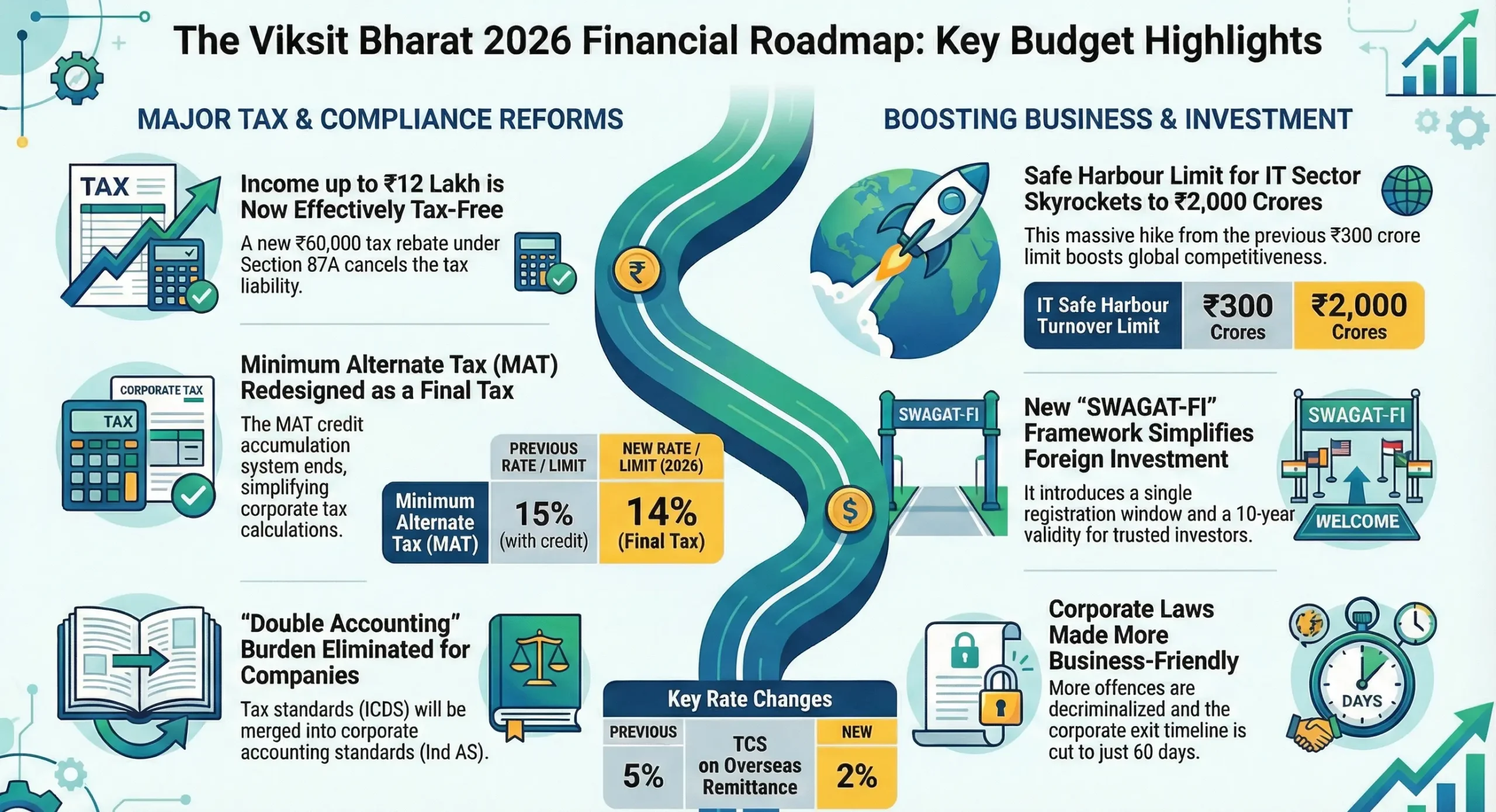The Reserve Bank of India (RBI) has vide its Circular dated July 10, 2024 allowed remittances for all permissible purposes under the Liberalized Remittance Scheme (LRS) to the International Financial Services Centre. Before delving into what remittances are allowed, let us understand a few important concepts in this regard.
Liberalized Remittance Scheme
Under the Liberalized Remittance Scheme (LRS), Authorized Dealers may freely allow remittances by resident individuals up to USD 2, 50,000 per Financial Year (April-March) for any permitted current or capital account transaction or a combination of both. However, the Scheme is not available to corporates, partnership firms, HUF, Trusts, etc.
Permissible Capital Account Transactions
The permissible capital account transactions by an individual under LRS are:
- Opening of foreign currency account abroad with a bank;
- Acquisition of immovable property abroad, Overseas Direct Investment (ODI) and Overseas Portfolio Investment (OPI), in accordance with the provisions contained in Foreign Exchange Management (Overseas Investment) Rules, 2022, Foreign Exchange Management (Overseas Investment) Regulations, 2022 and Foreign Exchange Management (Overseas Investment) Directions, 2022;
- Extending loans including loans in Indian Rupees to Non-resident Indians (NRIs) who are relatives as defined in Companies Act, 2013.
International Financial Services Centre
An International Financial Services Centre (IFSC) has been defined under Section 2(q) of the Special Economic Zones Act, 2005 (the “Act”) as an International Financial Services Centre which has been approved by the Central Government under Section 18(1) of the Act. Further, the Gujarat International Finance Tec- City (GIFT City) was set up as the first IFSC in India.
Read More: Direct Listing Of Shares Of Indian Companies Overseas Through IFSC GIFT City
An IFSC is basically set-up to undertake financial services transactions that are currently carried on outside India by overseas financial institutions and overseas branches / subsidiaries of Indian financial institutions (IFSC unit is treated as a non-resident under RBI regulations). An IFSC caters to customers outside the jurisdiction of the domestic economy. Such centers deal with the flow of finance, financial products and services across borders.
Present Scenario
At present, remittances under LRS to IFSCs can be made only for:
- Making investments in IFSCs in securities except those issued by entities/ companies resident in India (outside IFSC); and
- Payment of fees for education to foreign universities or foreign institutions in IFSCs for pursuing courses mentioned in the gazette notification no. SO 2374(E) dated May 23, 2022, issued by the Central Government.
For these permissible purposes, resident individuals can open Foreign Currency Account (FCA) in IFSCs.
Amended Scenario
As per the RBI’s latest Circular, RBI has liberalized the norms by allowing remittances for all permissible purposes under LRS to IFSCs for:
- Availing financial services or financial products as per the International Financial Services Center Authority Act, 2019 within IFSCs; and
- All current or capital account transactions, in any other foreign jurisdiction (other than IFSCs) through an FCA held in IFSCs. For these permissible purposes, resident individuals can open Foreign Currency Account (FCA) in IFSCs.
Impact of the Liberalization
The change widens the platform for overseas investments and expenditures. The increased overseas investments will promote the utility of GIFT IFSC and enhance India’s overall international financial ecosystem.
Disclaimer: This article provides general information existing at the time of preparation and we take no responsibility to update it with the subsequent changes in the law. The article is intended as a news update and Affluence Advisory neither assumes nor accepts any responsibility for any loss arising to any person acting or refraining from acting as a result of any material contained in this article. It is recommended that professional advice be taken based on specific facts and circumstances. This article does not substitute the need to refer to the original pronouncement
CLICK HERE DOWNLOAD PDF










